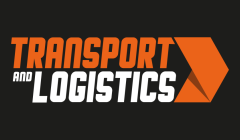
BVRLA Gives Ten Ways To Enjoy Hassle-Free Holiday Car Hire
With the summer holidays now in full swing, the British Vehicle Rental and Leasing Association (BVRLA) has created a list of the ten things travellers can do to have a smooth car rental experience.
“Whether you’re heading abroad to the Italian lakes or going on a staycation to one of Britain’s beaches, a hire car is the ideal way to have an enjoyable holiday this summer,” said BVRLA Chief Executive Gerry Keaney.
“Car rental is more flexible than public transport and far more cost-effective than taking taxis everywhere, so it gives millions of tourists the freedom to explore their destination in comfort and at their own pace.
“There are more than 10 million car rental transactions every year, and the vast majority are without complaint due to high standards of customer service. However, both customers and car rental staff can make mistakes during this busy time of the year, so we’ve put together a list of the top ten ways to enjoy hassle-free car hire.”
1. Beware of bogus car rental companies. It’s all too easy to be hoodwinked by a bogus company offering very low prices and nationwide availability, even for last minute bookings. So remember – if it looks or sounds too good to be true, it probably is.
2. Use a BVRLA member. Seeing the BVRLA logo on the website or in the branch when you’re booking is a sign that you are dealing with a reputable company that has been vetted and operates to a professional code of conduct. Using a member also means you can use our conciliation service in the unlikely event of any dispute. You can find BVRLA members near you by using our website: www.carhire.bvrla.co.uk
3. Do your homework. If you’re relying on a price comparison or aggregator site when getting quotes, pay close attention to what is and isn’t included in the price. Many only give you a basic drive-away cost that may not include your specific requirements for things like additional drivers, child seats or sat-navs. Plus, some rental companies charge extra if you can’t return the vehicle to the same location or are leaving the country.
4. Read the paperwork. Make sure you read and understand the terms and conditions of your contract with the rental company. Ask for a copy prior to your rental, so that you can read it in your own time rather than when you’ve just arrived at your destination. This ensures you have plenty of time to read it through, and means you can call the rental company to discuss any questions you may have.
5. Understand the insurance excess and waivers. People take different approaches to risk, and often change their mind, so rental companies offer a variety of products to help consumers reduce their liability in the event of an accident or incident. With this in mind, it’s vital to check if there are any exclusions to your loss/damage waiver or your insurance. In many cases, windscreens, tyres and roof damage are not covered. It’s also worth thinking ahead about what sort of cover you want. Whatever you do, don’t leave your decision until you arrive at your destination.
6. Find a fuelling option that suits you. Your car rental quote will not include fuel. Most companies will give you the option of buying a tank of fuel from them and returning the car empty or returning it with a full tank. Remember what you agreed to, otherwise you could end up gifting the rental company a free tank of fuel or paying an extra charge to have the tank re-filled.
7. Tell the rental firm how you plan to use the vehicle. Make sure that you tell the rental company if you’re going to take the vehicle abroad – some companies won’t let you take rental cars into certain countries. You’ll also need relevant documentation, such as a VE103B certificate and proof that you’re insured to drive the vehicle in that country. It’s always worth doing your research on local traffic regulations, restricted zones (e.g.: London Congestion Zone) or tolls (e.g.: Dartford Tunnel). Your rental company will be happy to advise you if you ask.
8. Arrive prepared. Remember to turn up at the rental desk with the credit card you used to make your booking and both parts of your driving licence – the paper counterpart and the photocard. Ensure you have thought about whether you are prepared to pay for any extra cover or an upgrade, and take a copy of your rental confirmation and terms and conditions so you know what you have already agreed or paid for.
9. Check the vehicle over before you drive away. Do a thorough inspection, inside and out, walking all the way around the vehicle. Note every single chip, dent and scratch. Pay particular attention to the wheels, windscreen and lights, which are common damage areas. Don’t sign any paperwork until you have read it through and are happy with it. Before you drive the hire vehicle away, familiarise yourself with all of its controls – lights, windscreen wipers etc.
10. Don’t just drop and dash. When returning your vehicle, allow plenty of time so you can check over the vehicle’s condition with a rental agent present. This is particularly important if you’re returning a car to a busy rental site, such as an airport. It’s always best to return the vehicle during opening hours so that someone can check it over with you and sign the condition report. If you return a vehicle outside these hours, you’re liable for any damage that occurs between the drop-off and the inspection. If this situation can’t be avoided, take pictures of the car to prove the condition you left it in.




